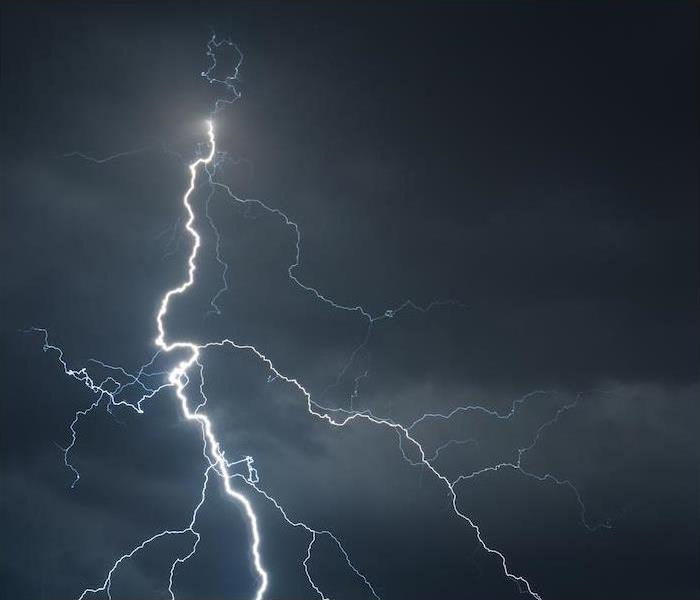Preparing for Summer Storms | SERVPRO® of Gwinnett County South
9/2/2021 (Permalink)
 If storms cause damage to your home or business, SERVPRO of Gwinnett County South is on the line, ready to make things right.
If storms cause damage to your home or business, SERVPRO of Gwinnett County South is on the line, ready to make things right.
Summer is a most enjoyable season. It instantly conjures images of sunflowers in bloom, warm evenings at the ballpark cheering on the Stripers and maybe even a vacation to the coast somewhere. The days are long, the lemonade is cold and the sun is close.
But why does it perpetually seem like there’s a 30% chance of thunderstorms in the afternoon?
If you’ve noticed storms are often predicted in the summertime, it’s not just you. Our area averages about 10 rainy days per month, during the summer, and the warm weather combines with the sticky southern moisture to turn those rainy days into stormy ones.
Be Storm-Alert
Storms are our most common weather danger, but that doesn’t mean we should ever treat them lightly. Consult local forecasts or weather apps for accurate forecasts and alerts. An NOAA Weather radio can be a great help as well, because it focuses solely on weather and can keep you informed even if a storm knocks out your power.
Flooding can be difficult to predict, particularly flash flooding, but if an alert is issued, you should reexamine any travel plans you may have, or get home if you’re on the road. If heavy winds are forecast, look around the yard and find objects you may need to move so they don’t get blown away or washed down the street.
Yes, preparing for a storm is mundane, and kind of a chore, but don’t ignore it. Storm-related incidents cause dozens of deaths every year, and an ounce of prevention could prevent a high percentage of them.
Be Storm-Safe
During a storm, be inside if at all possible. This gives you the most protection from lightning and wind. Stay indoors until rain has stopped and you haven’t heard thunder for a half hour—this indicates that the storm has moved far enough away that lightning is no longer a threat.
Tubs and showers are a no-no during a storm, as the water and metal conduct electricity and could harm you should lightning strike. Windows can shatter in heavy storms as well, so sit somewhere out of the way.
Stock up your emergency kit with water, food, medication and other items in case an extended power outage occurs or circumstances dictate evacuation.
Flood waters are dangerous in many ways and should be avoided at all costs. They can carry people and cars away, conceal washed-out roads and conduct electricity from downed power lines. On top of that, they can be full of gasoline and harmful chemicals. Just stay away.
There are any number of dangers that can come into play in a thunderstorm, and it’s always best to be cautious and put things on hold until storms safely pass. If storms cause damage to your home or business, SERVPRO is on the line, ready to make things right again.


 24/7 Emergency Service
24/7 Emergency Service